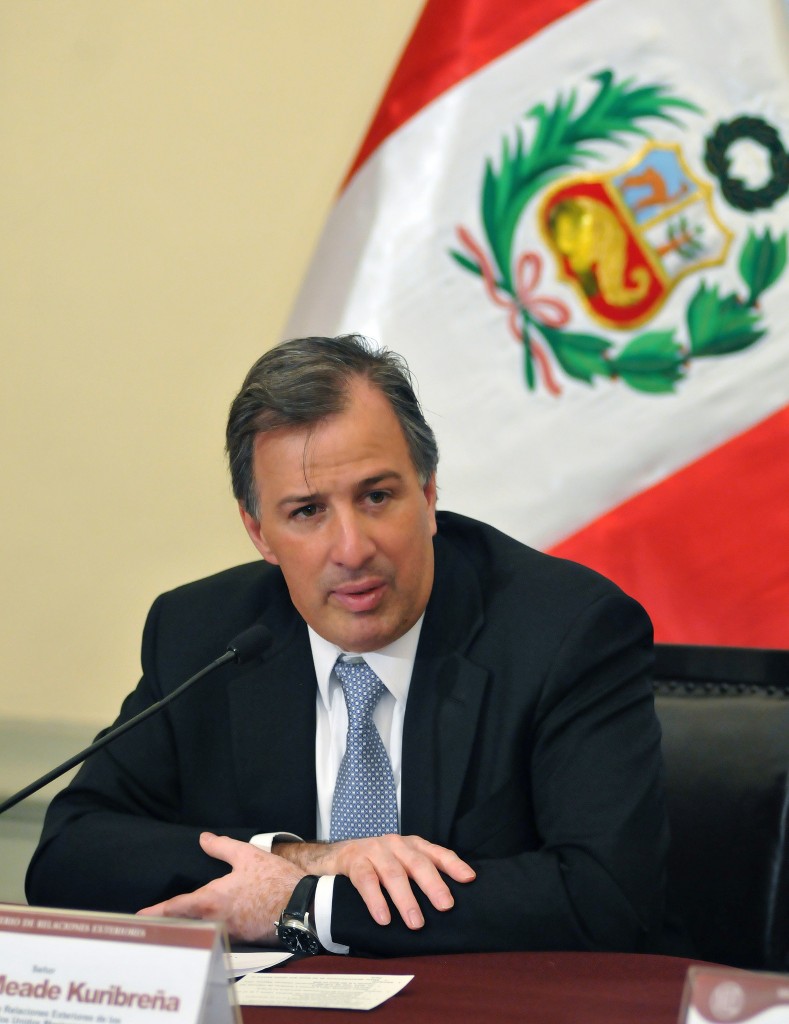Having worked under two presidents (Calderón and Enrique Peña Nieto) of different political parties, Jose Antonio Meade is the first Mexican to occupy four different positions as Secretary—of Energy, of Finance and Public Credit, of Foreign Affairs, and, currently, of Social Development. Meade graduated with a degree in Economics from the Autonomous Technological Institute of Mexico (ITAM) in 1994 and received his Ph.D. in Economics from Yale in 1997.
Harvard Political Review: In the last five years, you have been in four different Secretary positions—Energy, Finance, Foreign Affairs, and now Social Development. What is next? What is the biggest challenge for you in 2016?
Jose Antonio Meade: I believe public service is a vocation, a vocation that has a path and a journey. And many times, in politics as well as in life, what matters is the journey. If one is preoccupied with the final destination, one runs the risk of not only losing focus on the journey but of not enjoying or taking advantage of it, even deviating from the said journey. That, for me, as a life lesson has always been important. Today, who I am, is the secretary of social development, a fascinating institution, an institution that allows me to touch lives and to transform the stories of families. I hope that what is next is a remembrance of good management of the secretariat [of social development].
HPR: Mexico has started the year 2016 with a devaluation of the peso relative to the American dollar and a fall in the price of oil. How does that affect Mexicans in a state of poverty?
JAM: That depends. There are different types of expressions, many things are true: Mexico is a country that has a good agricultural economy. It has good public finances, and amidst developing countries it is the one that has the most potential to grow, not only in the Latin American region but also in the world, which is a reflection of the good management of our economy. Regarding the effects on poverty, the exchange rate has two options: transmission—on one side, income, and here, in general terms, it is not obvious what the effects will be given the exchange rate. For example, for a person that receives remittances, the devaluation in the exchange rate strengthens what they receive. And the other option, communication, is the effect it’ll have on prices. Part of what has given Mexico strength today is that for a long time it has had a flexible exchange rate, implying that it is not through automatic means that the variation in the exchange rate translates into inflation. What we are seeing at the same time is an exchange rate that has adjusted and a low inflation rate, which has been the lowest recorded. In general terms, if the economy keeps growing at the current pace and the stability of prices are maintained then there shouldn’t be an effect on poverty on behalf of the variations in the exchange rate.
HPR: I have been noticing lately that the number of municipalities that are covered by the Crusade against Hunger has been increasing: 271 in 2013, 517 in 2014, and 526 in the last year. Shouldn’t the number be decreasing since the program is combatting poverty?
JAM: In that aspect, no, because there is presence of poverty in the entire country, and the Crusade is a coordinated effort. It is a coordinated effort that recognizes that poverty has many faces and many causes. It also recognizes that it is not the responsibility of a sole governmental agency or of any sole level of government. Poverty establishes as a premise the value and obligation that those whose programs can have an impact on the causes or various faces of poverty should sit at the same table. That the program is spreading and becoming larger throughout the country is positive. It’ll have a larger burden, especially in those municipalities where poverty is far more entrenched or more important, and less of a burden where it isn’t. But in no case will this coordinated effort get in the way… The programs will positively affect the life of a Mexican citizen, and that Mexican citizen will find himself in a better situation than prior to the Crusade and [the program’s] approach.
This interview has been edited and condensed.
Image source: Flickr/Ministero de Relaciones Exteriores
